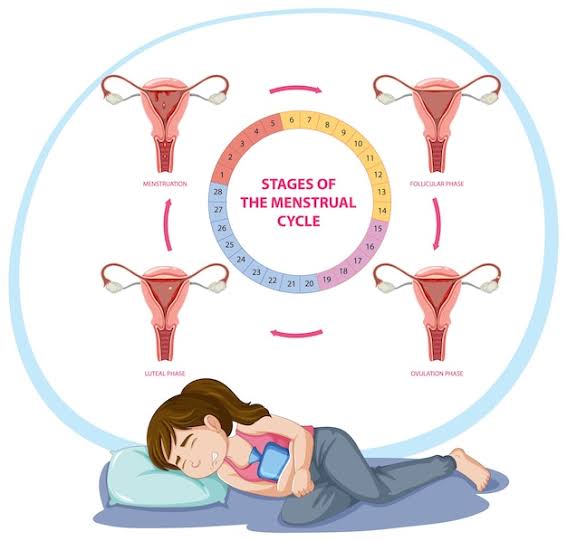If you’re a woman who has ever wondered whether you can donate plasma while on your period, you’re not alone. It’s a common question that many women have, and the answer may surprise you. The good news is that menstruation does not impact plasma itself or donation eligibility. As long as you meet all other donor criteria, donating plasma during your period is perfectly fine. In fact, period blood contains some plasma, but losing it does not affect plasma levels. So, let’s explore the facts and debunk any misconceptions surrounding plasma donation during menstruation.
Contents
Can You Donate Plasma on Your Period?

The good news is that menstruation does not impact plasma itself or donation eligibility. Plasma centers use sterile collection equipment to prevent any contamination, making the process safe and hygienic. So, yes, you can absolutely donate plasma while menstruating.
It’s important to note that period blood contains some plasma, but losing it does not affect plasma levels in your body. Menstrual flow is not considered active bleeding in terms of donation eligibility. Having your period does not make you anemic or lower protein levels. Therefore, as long as you meet all other donor criteria, donating on your period is not an issue.
Menstruation does not affect plasma itself or donation eligibility. Plasma centers take necessary precautions to ensure a safe and sterile donation process. So, if you’re on your period and meet all other donor criteria, feel free to donate plasma and make a positive impact on others’ lives.
Understanding Plasma Donation
What is Plasma?
Plasma, the liquid component of blood, plays a crucial role in maintaining overall health. It contains various proteins, hormones, and antibodies that are essential for the body’s immune system and clotting functions. Plasma is used to create life-saving medications for individuals with specific medical conditions, such as immune deficiencies, hemophilia, and burns.
Why Donate Plasma?
Donating plasma is a selfless act that can have a significant impact on the lives of others. By donating plasma, you are helping individuals in need receive vital medications and treatments. The demand for plasma-derived products continues to rise, especially for those with chronic illnesses or medical conditions that require repeated transfusions. Your donation can make a real difference and potentially save lives.
Eligibility for Plasma Donation
While menstruation does not affect the eligibility to donate plasma, it’s important to understand the general guidelines for plasma donation. Eligibility may vary depending on factors such as age, weight, overall health, and any recent travel to certain countries. Typically, you must be at least 18 years old, weigh a minimum of 110 pounds, and be in good health to donate plasma.
It’s crucial to note that specific medical conditions or medications may disqualify you from donating plasma. Conditions such as HIV/AIDS, hepatitis, and certain autoimmune disorders may be considered ineligible for donation. Additionally, if you’ve recently received a tattoo or piercing, you may need to wait a specified period before being eligible to donate.
Before donating, it’s recommended to consult with a healthcare professional or visit a plasma donation center to ensure you meet the eligibility criteria. They will provide you with a comprehensive screening process to determine your eligibility and ensure the safety of both you and the recipient.
By understanding the importance of plasma donation and the eligibility guidelines, you can make an informed decision about donating plasma, regardless of whether you are on your period or not. Your contribution can have a lasting impact on the lives of those in need.
Menstrual Cycle and Plasma Donation

Changes in Hormone Levels
During your menstrual cycle, your hormone levels fluctuate. This can lead to physical and emotional changes in your body. Estrogen and progesterone levels rise and fall, causing symptoms like bloating, cramps, mood swings, and fatigue.
Physical and Emotional Well-being during Menstruation
It’s important to listen to your body during your period. If you’re experiencing severe pain or discomfort, it may be best to wait until you’re feeling better before donating plasma. Taking care of yourself and ensuring you are in good physical and emotional health is crucial before donating.
Risks Associated with Donating Plasma During Menstruation
There are no specific risks associated with donating plasma while on your period. The process of plasma donation is safe and sterile, and the equipment used is designed to prevent contamination. However, if you’re experiencing heavy bleeding or other severe menstrual symptoms, it’s advisable to consult with a healthcare professional before donating.
Can Menstruating Women Donate Plasma Safely?
Yes, women can donate plasma safely while on their period. Menstruation does not affect plasma itself or donation eligibility. However, eligibility rules for plasma donation may vary depending on location and regulatory guidelines. It’s always best to consult with a healthcare professional or visit a plasma donation center to determine your eligibility and ensure your safety.
Tips for Plasma Donation during Menstruation
If you decide to donate plasma while on your period, here are a few tips to make the process more comfortable:
- Stay hydrated by drinking plenty of water before and after donation.
- Eat a nutritious meal before your donation to maintain your energy levels.
- Wear loose and comfortable clothing to allow for easy access to your arm during the donation process.
- Communicate any discomfort or concerns with the medical staff at the donation center.
Can Donating Plasma Affect Your Period?
Donating plasma does not typically affect your menstrual cycle. The amount of plasma donated is relatively small compared to the total volume in your body, and it does not disrupt the hormonal balance that regulates your period. However, if you have concerns or notice any changes in your cycle after donating plasma, it’s recommended to consult with a healthcare professional for further evaluation.
Remember, donating plasma is a selfless act that can have a significant impact on the lives of others. If you’re eligible and feeling well, you can donate plasma on your period without any major concerns.
Preparing for Plasma Donation during Your Period
As an experienced female, you may be wondering about the logistics of donating plasma while on your period. Rest assured, menstruation does not impact your ability to donate plasma or your eligibility as a donor. However, there are a few things to keep in mind to ensure a smooth and comfortable experience.
Timing Your Donation
When planning to donate plasma during your period, it’s essential to consider timing. Some women experience heavier flow or discomfort during the first few days of their period. If this is the case for you, it may be best to schedule your donation for a day when your flow is lighter and you are feeling more comfortable. Keep in mind that plasma centers typically require at least one day between donations, so plan accordingly.
Hygiene and Comfort
Maintaining good hygiene during your period is crucial, especially when donating plasma. Before your appointment, make sure to take a shower or bath and use a clean tampon or pad. Avoid using any scented products in the genital area, as they can interfere with the donation process. Additionally, wearing loose-fitting and comfortable clothing can help you feel more at ease during the donation.
Communicating with the Plasma Donation Center
It’s always a good idea to communicate with the plasma donation center about your period. While it doesn’t affect your eligibility, informing the staff allows them to provide any additional guidance or address any concerns you may have. The staff is trained to handle donations from menstruating individuals and will ensure that you are comfortable throughout the process.
Remember, donating plasma is a selfless act that can have a significant impact on the lives of others. By following these guidelines, you can donate plasma while on your period without any issues. So, go ahead and make a positive difference in the lives of those in need.
Myths and Misconceptions

Myth: Period Blood and Plasma are the Same
One common misconception is that period blood and plasma are the same. However, this is not true. Plasma is the liquid portion of blood that contains important proteins, antibodies, and other components. Period blood, on the other hand, is the shedding of the uterine lining and does not contain the same components as plasma. Therefore, donating plasma during your period does not affect the quality or safety of the plasma donation.
Myth: Donating Plasma during Your Period is Dangerous
There is a belief that donating plasma during your period can be dangerous. However, this is another myth. Menstruation does not make you ineligible to donate plasma, and it does not pose any additional health risks. As long as you meet the other eligibility criteria set by the plasma donation center, you can donate plasma regardless of whether you are on your period or not. It is important to note that donating plasma should not cause any additional discomfort during your period.
Myth: Women on Their Periods Should Not Donate Plasma
Some people believe that women should refrain from donating plasma while on their periods. However, this is not true. As mentioned earlier, menstruation does not affect plasma donation eligibility. It is a personal choice whether to donate plasma during your period or wait until it’s over. If you choose to donate while on your period, it is advisable to schedule your donation for days when your flow is lighter and discomfort is minimized. Good hygiene, such as showering and using clean tampons or pads, before the donation is crucial.
Remember, donating plasma is a selfless act that can have a significant impact on the lives of others. If you have any concerns or questions regarding donating plasma during your period, it is always best to communicate with the plasma donation center. They can provide you with the necessary information and address any concerns you may have.
Conclusion
Donating plasma while on your period is completely safe and does not affect your eligibility. It’s important to plan your donations for days when your flow is lighter and discomfort is minimized. Prioritizing good hygiene, such as showering and using clean tampons or pads, before donation is crucial. If you have any concerns or questions about donating plasma during menstruation, it’s recommended to communicate with the plasma donation center. Remember, donating plasma is a selfless act that can have a significant impact on the lives of others. It’s important to note that period blood and plasma are not the same, and donating plasma during your period is not dangerous. Ultimately, the choice to donate plasma while on your period or wait until it’s over is up to you.
Can I donate plasma while on my period?
Yes, menstruation does not affect plasma donation eligibility. Women can donate plasma while on their period.
What precautions should I take when donating plasma during my period?
It is important to consider timing and schedule donations for days when flow is lighter and discomfort is minimized. Good hygiene, such as showering and using clean tampons or pads, is crucial before donation.
Is donating plasma during menstruation dangerous?
No, donating plasma during menstruation is not dangerous. Period blood and plasma are not the same. Women can choose to donate plasma during their period or wait until it’s over.
Should I inform the plasma donation center about my menstruation?
Yes, it is recommended to communicate with the plasma donation center about menstruation to address any concerns or questions you may have.
Can donating plasma make me lose weight?
While donating plasma can cause a small amount of temporary weight loss, it is not an effective or healthy way to lose weight in the long run. Plasma donation removes fluid from the body which can make the scales tip slightly downward for a short time.
I am a medical student with experience and interest in Women’s health and well-being.